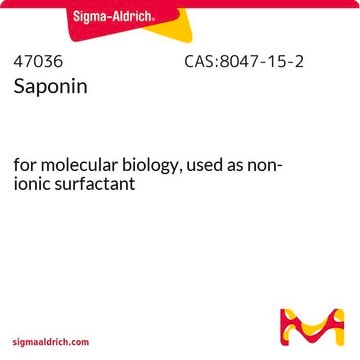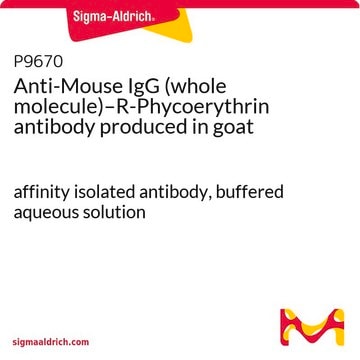S7900
Saponin from quillaja bark
Sapogenin content ≥10 %
About This Item
Productos recomendados
descripción
non-ionic
composición
Sapogenin content, ≥10%
técnicas
HPLC: suitable
protein quantification: suitable
cenizas sulfatadas
<20%
¿Está buscando productos similares? Visita Guía de comparación de productos
Descripción general
Aplicación
- to stain CD4+ and CD8+ T-cells
- to lyse trophozoite-infected red blood cells
- in immunohistochemical staining
Acciones bioquímicas o fisiológicas
Palabra de señalización
Warning
Frases de peligro
Consejos de prudencia
Clasificaciones de peligro
Eye Irrit. 2 - STOT SE 3
Órganos de actuación
Respiratory system
Código de clase de almacenamiento
11 - Combustible Solids
Clase de riesgo para el agua (WGK)
WGK 2
Punto de inflamabilidad (°F)
Not applicable
Punto de inflamabilidad (°C)
Not applicable
Equipo de protección personal
dust mask type N95 (US), Eyeshields, Gloves
Certificados de análisis (COA)
Busque Certificados de análisis (COA) introduciendo el número de lote del producto. Los números de lote se encuentran en la etiqueta del producto después de las palabras «Lot» o «Batch»
¿Ya tiene este producto?
Encuentre la documentación para los productos que ha comprado recientemente en la Biblioteca de documentos.
Los clientes también vieron
Nuestro equipo de científicos tiene experiencia en todas las áreas de investigación: Ciencias de la vida, Ciencia de los materiales, Síntesis química, Cromatografía, Analítica y muchas otras.
Póngase en contacto con el Servicio técnico
















